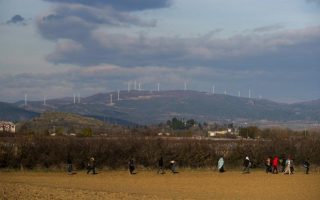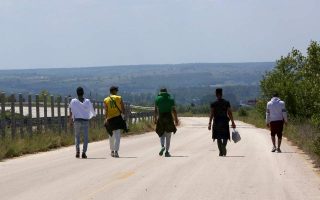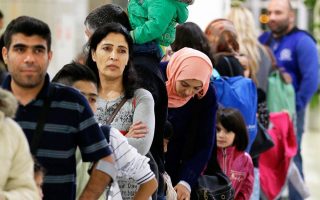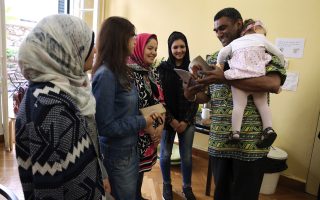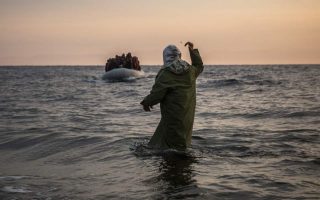Refugee situation in Samos worse than Moria, says top EU official
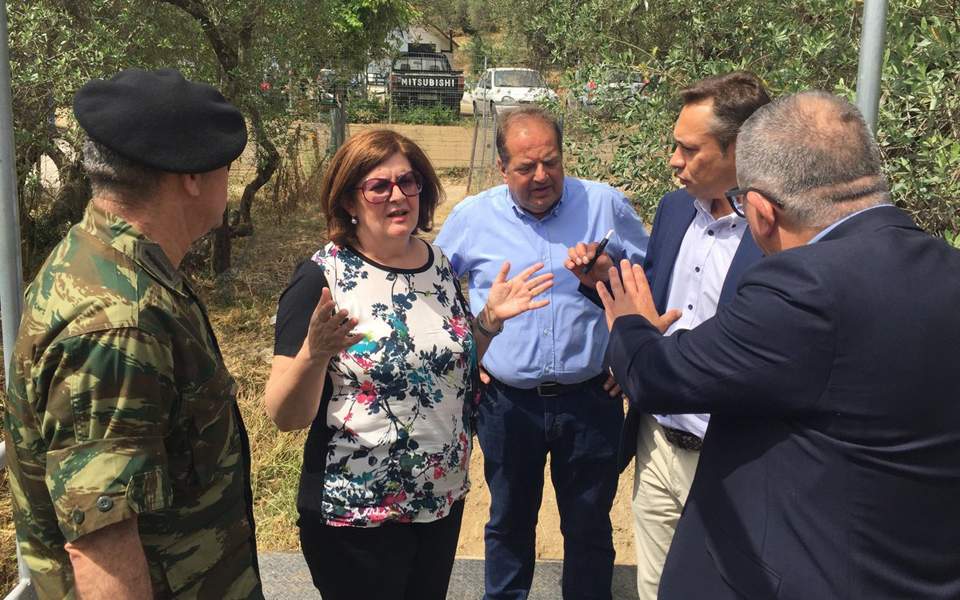
A high-ranking EU official warns that, despite some improvements, the situation in refugee camps in Moria, on the island of Lesbos, and, even more so, in Samos is still dire.
Vivi Michou, Director-General of the European Commission’s Migration and Home Affairs department since last March, tells Kathimerini that Greek authorities should accelerate preparations for the coming winter.
According to Kathimerini’s sources, if conditions in refugee camps do not improve by September 2019, the Commission may take measures.
Ms. Michou, the highest-ranking Greek official in the Commission, other than Commissioner Dimitris Avramopoulos, and the first woman to occupy this particular post, is a key player in dealing with the migration crisis. Commission president Jean-Claude Juncker has worked with her in the past and entrusted her with this difficult post.
Michou is making frequent visits to Greece. She tells that, in Moria, conditions have somewhat improved, with 3,000 refugees of the 10,300 living in the overcrowded camp in September relocated in central Greece. However, for the 4,000 living outside the camp, the situation is disheartening and they could face serious problems during the winter.
But in Samos, the situation is worse, since most of the recent arrivals have headed there. The refugee camp, built to accommodate 600 people, now houses 4,118 and there are huge problems with the plumbing and toilets. Greece has been given until September 2019 to improve conditions and expand the camp’s actual capacity to 1,500, with the rest, presumably, relocated.
Michou met with Greek officials last week in Athens to coordinate action and find out if progress has been made in returning migrants not eligible for refugee status to Turkey. The slow pace in processing and returning them is the main reason of overcrowding at the camps in the Eastern Aegean islands
A scarcity of doctors is among the most pressing problems, not only because they must tend to the camp populations’ needs but also because they are needed to process those requesting asylum, because a medical exam is required for every applicant.
“We expect to have another 150 doctors by mid-December,” says Michou, adding that so far there have been no infectious disease outbreaks.
Soon, a mobile unit to speed the processing of asylum requests will be sent to Samos with the support of Frontex, the Schengen area border agency, and the European Asylum Support Office. However, Michou says that Greek authorities have sole responsibility for managing the process. “We provide Greece with financial, operational, technical and advisory support but we are not substituting for the Greek authorities,” she says.
Since 2015, the EU has set aside over 1.6 billion euros in aid to Greece on migration and the authorities have still to use over 500 million from this package.
The problem lies with coordination among different Greek agencies and applying the laws already voted to speed up the processing of migrants.
“We currently do not have enough arrivals to speak of a crisis,” says Michou, adding that by the next European Parliament elections in May 2019, several important decisions will have hopefully been made, such as revising the Dublin Treaty, strengthening Frontex and giving aid to third countries.
“The EU is much better prepared to face a future migration crisis than it was in 2015,” she says. “There is a solutions package on the table that is up to the member states to adopt.”
